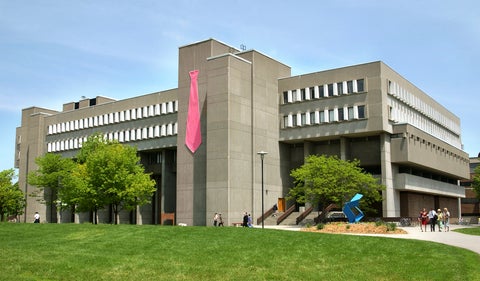
Dean's Distinguished Women in Mathematics, Statistics, and Computer Science Lecture Series
Arithmetic patterns in dense sets
Abstract: Some of the most important problems in combinatorial number theory ask for the size of the largest subset of the integers in an interval lacking points in a fixed arithmetically defined pattern. One example of such a problem is to prove the best possible bounds in Szemerédi's theorem on arithmetic progressions, i.e., to determine the size of the largest subset of {1,...,N} with no nontrivial k-term arithmetic progression x,x+y,...,x+(k-1)y. Gowers initiated the study of higher order Fourier analysis while seeking to answer this question, and used it to give the first reasonable upper bounds for arbitrary k. In this talk, I'll discuss recent progress on quantitative polynomial, multidimensional, and nonabelian variants of Szemerédi's theorem and on related problems in harmonic analysis and ergodic theory.
Bio: Dr. Sarah Peluse works in analytic number theory and arithmetic combinatorics and is especially interested in questions in higher-order Fourier analysis and additive number theory. She earned her PhD from Stanford University in 2019. After that, she held postdoctoral positions at Oxford, Princeton, and IAS before taking a tenure-track assistant professor position at the University of Michigan in 2023. Dr. Peluse received the 2022 Dénes Köng Prize for her work on polynomial generalizations of Szemerédi's theorem. In the same year, she received the distinguished Maryam Mirzakhani New Frontiers Prize "for contributions to arithmetic combinatorics and analytic number theory, particularly with regards to polynomial patterns in dense sets." In 2023, she received the highly prestigious Salem Prize for contributions to additive combinatorics and related fields.
Location Information
200 University Avenue West
Waterloo, ON, CA N2L 3G1